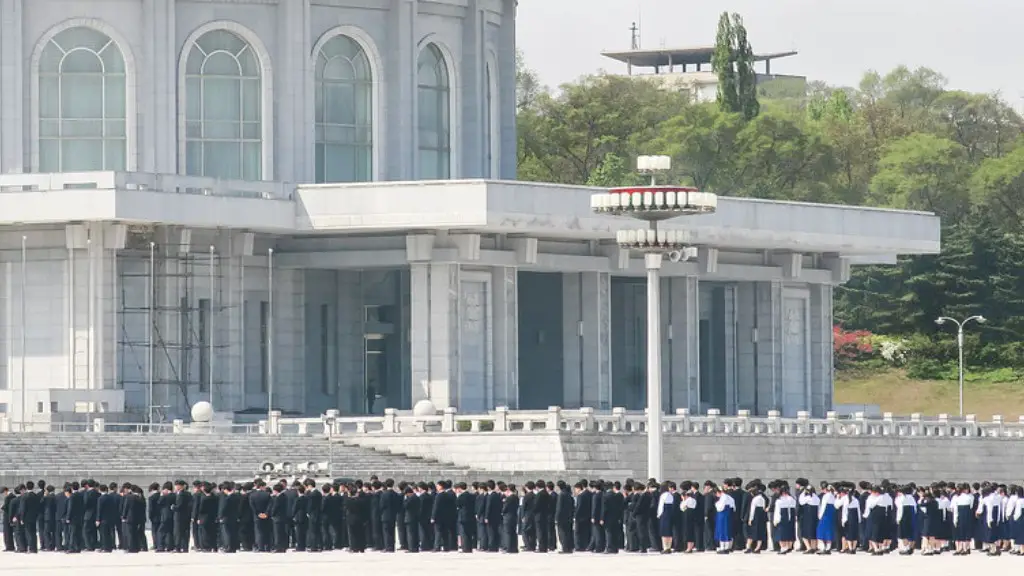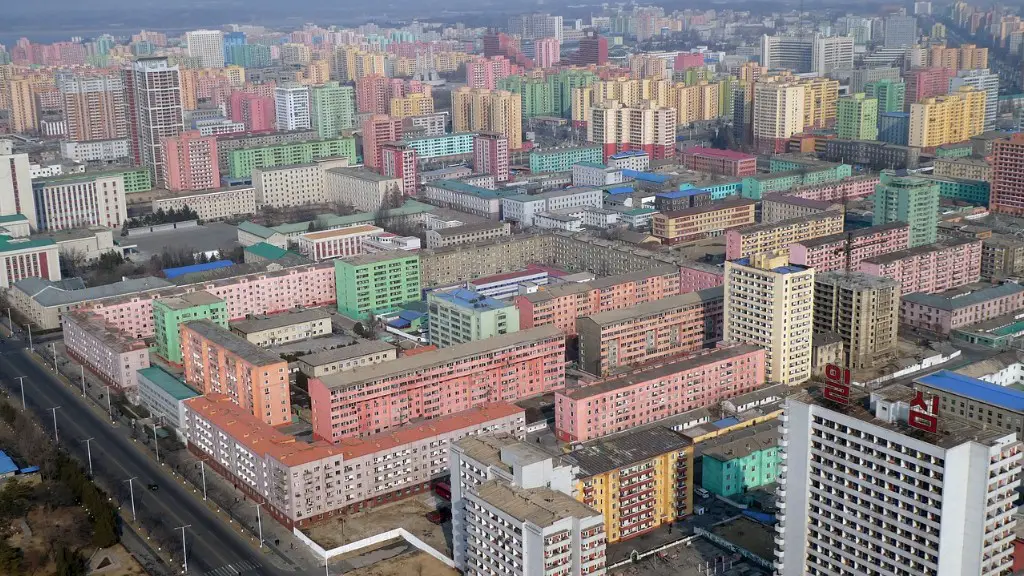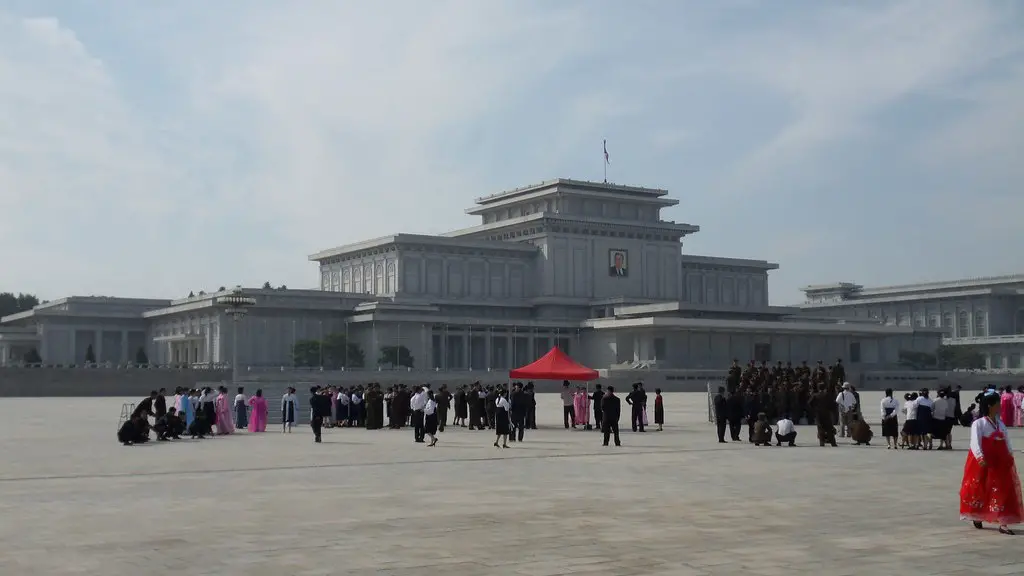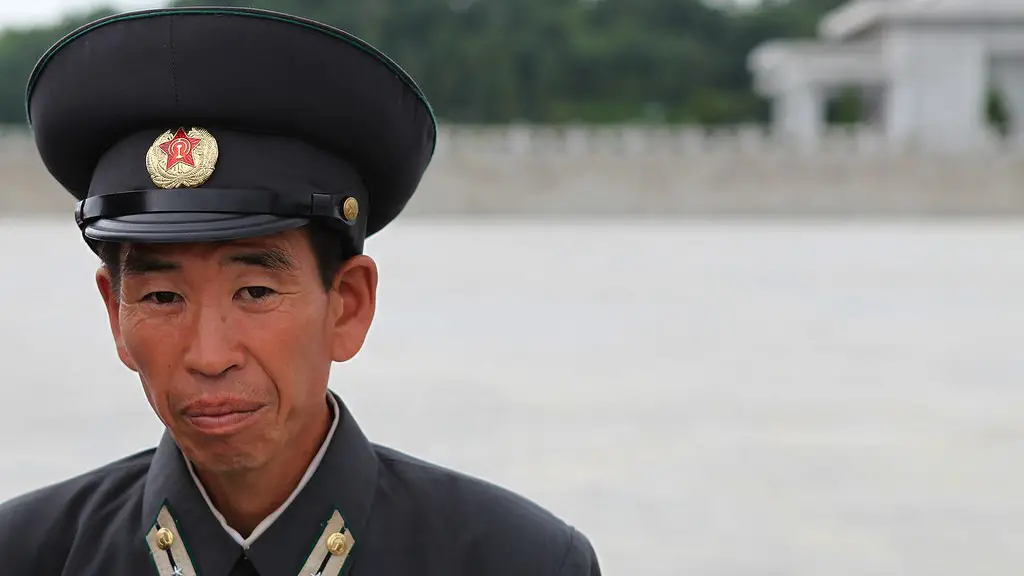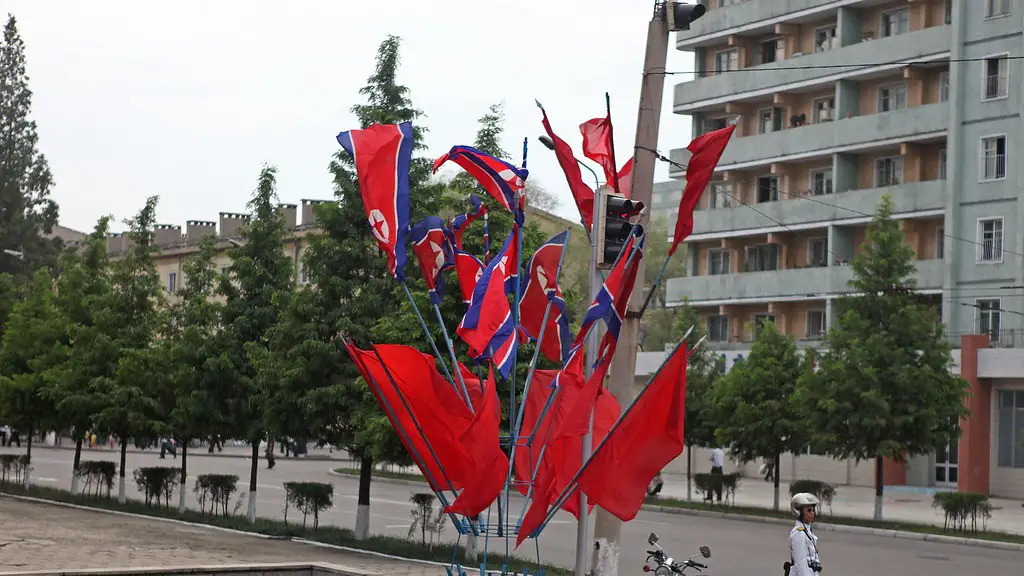What Is The Problem of North Korea?
Recent news coverage of North Korea often paints a dismal picture of its political and economic struggles. It has become one of the most isolated and oppressive countries in the world, facing deep poverty and harsh international sanctions. But what are the main issues facing North Korea today?
One of the primary issues is an abundance of political instability. Under the oppressive regime of the Kim Jong-un family, North Korea has essentially become a single-party state. All of the key decisions are made by the ruling party and those who disagree are quickly suppressed. This leads to widespread disenchantment with the system and a lack of trust in North Korea’s leaders. The United Nations has noted that the human rights situation in North Korea is “among the worst in the world”. For years, political dissidents have been persecuted, jailed, and sometimes even executed for minor offenses like watching foreign TV, listening to foreign radio, or attempting to flee the country.
Another major problem for North Korea is its economy. Despite a population of 25 million people, the country is considered to be among the lowest-ranked economies in the world. Most North Koreans live in abject poverty, with access to basic necessities like running water, food and electricity limited. The country’s vast military spending further siphons resources away from helping citizens, and the economic activity that does exist is largely centred around the black-market trade in illicit goods.
The sanctions introduced by the United Nations as a response to North Korea’s nuclear weapons programme further exacerbate the limited access to resources. Sanctions function as a double-edged sword, as they limit much-needed capital and aid to one of the most impoverished countries on the globe. In 2018, the United Nations estimated that North Korea suffers from malnourishment in as much as thirty percent of its population, with a further fifty-two percent of the children in the country considered malnourished.
Of course, a primary reason for the international opposition to North Korea is the regime’s decades-long pursuit of nuclear weapons. After the end of the Cold War, North Korea began to develop its own nuclear weapons programme, much to the concern of the international community. In response, the United Nations introduced a series of increasingly stringent sanctions on the country, further limiting its access to resources and help. The situation has grown increasingly tense in recent years, with North Korea testing its nuclear weapons in 2017 and 2018.
Despite its many issues, North Korea still has hope for a better future. A growing pressure from the international community, as well as increasing contacts with South Korea and China, could provide a path forward for the country. Although it is difficult to predict what will come next for North Korea, one thing is certain: the world is watching and hoping that the situation will improve.
Economic Instability
Perhaps one of the most pressing issues for North Korea is its economic instability. Despite the numerous natural resources deposited within the nation’s borders, the majority of the population lives in poverty. Political strife has led to the unstable exchange of foreign currency and an overreliance on imports. Over eight million citizens of the nation’s 25 million people are facing food insecurity, and there is growing discontent with the living conditions.
North Korea’s economic infrastructure is also affected by its lack of investment opportunities. Many foreign companies are wary of investing in the country due to the lack of a mature infrastructure and the high risk associated with doing business in the country. This lack of investment has put a strain on the country’s domestic economy, leading to widespread poverty and limited access to the global marketplace.
The country has also experienced increasing levels of inflation over the past few years. This rapid rise in inflation has been attributed to the overprinting of money and the lack of foreign investment. As the cost of living rises and purchasing power decreases, the citizens of North Korea have been increasingly unable to afford basic necessities.
North Korea’s economic issues are further worsened by the international sanctions imposed on the country by the United Nations. These sanctions function as a double-edged sword, as they limit much-needed capital and aid to one of the most impoverished countries in the world. Although the sanctions are intended to prevent the country from obtaining its nuclear weapons, the majority of its citizens are the ones who suffer most from their implementation.
While the country faces a number of daunting economic challenges, there is hope that if the international community can find a way to negotiate with the North Korean government, some of these issues can be resolved. But for now, the people of North Korea continue to struggle in poverty and uncertainty.
Political Repression
Political repression has been an issue in North Korea for decades. The country is led by an oppressive regime that rules with an iron fist. The Kim Jong-un family dynasty has been in control of the country since 1948 and has made it clear that those who oppose their rule will be punished. For example, the government has placed vast restrictions on the freedom of the press, speech, and assembly.
The lack of human rights and freedoms also contributes to North Korea’s issues. The unwarranted detainment of political prisoners, torture, and public executions have become commonplace under the oppressive regime. These cruel restraining orders have drawn worldwide criticism, leading to the development of the UN report on Human Rights in North Korea, which outlined many of the abuses committed by the North Korean government.
The results of this oppressive rule can be seen in the country’s shrinking population. Over the past few decades, the people of North Korea have experienced falling birthrates and a growing number of refugees fleeing the country in search of a better life. This outflow of citizens, as well as the lack of foreign investment, has contributed to North Korea’s economic woes.
The only way to address North Korea’s political issues is to shift the country’s leader’s away from the current policy of repression and oppression. This would require a return to the values of democracy and free speech. Unfortunately, this has proven to be a difficult task, as the Kim Jong-un family has demonstrated a clear reluctance to give up their iron grip on power.
Despite this, the international community continues to push for reform in North Korea. For those within the country, this means holding on to the hope that one day, the nation will no longer be controlled by a repressive regime, but instead by a government that respects the basic rights and freedoms of all its citizens.
Nuclear Weapons
Nuclear development has been one of the major sources of global tension in regard to North Korea. The nation has been in pursuit of nuclear weapons since the beginning of the 21st century, despite being subject to a series of international sanctions. The biggest issue in regard to this issue is the potential threat of nuclear war that could arise in the wake of this development.
The United Nations has taken the lead in trying to prevent North Korea from developing an operational nuclear arsenal. The UN Security Council imposed a series of increasingly harsh sanctions on the nation as a means of dissuading the North Korean government from continuing with its weapons programme. These sanctions also limited North Korea’s access to much-needed resources, exacerbating the country’s economic woes.
Fortunately, the international peace efforts have been met with some hope. North Korea resumed its dialogue with the United States in 2018 and has since agreed to several denuclearization objectives. However, these talks have been met with some skepticism, as North Korea has yet to take any tangible steps toward denuclearization.
The future of North Korea’s nuclear weapons programme will be decided by the cooperation—or lack thereof—between the nation and the international community. Ultimately, the only way to enforce the denuclearization of North Korea is through a new UN agreement. Until then, the prospect of nuclear war remains a very real threat.
Social Problems
Aside from the economic and political issues, North Korea is also facing several social problems. Health care, education and the right to employment are all largely inaccessible to the majority of citizens in the country. This lack of access to basic necessities has led to a situation of poverty and inequality that is pervasive throughout the nation.
The medical system in North Korea is one of the worst in the world. According to the United Nations, North Korea has the lowest life expectancy at birth rate, and many of its citizens lack access to basic medical care. This has led to rising rates of malnutrition and other preventable diseases, as well as a growing number of deaths from treatable illnesses.
Education is also a major concern. Most North Koreans lack access to quality education and are illiterate. This has led to a lack of skilled professionals and workers, which has in turn hindered the nation’s economic development. Furthermore, the country has one of the lowest levels of gender equality in the world.
The social issues in North Korea have further contributed to the nation’s political strife. Many of the citizens have grown increasingly discontent with the oppressive regime and have become increasingly vocal in their opposition. This discontent has contributed to an increase in defections, as citizens attempt to flee the country in search of a better life.
In order to address the social issues in the nation, North Korea will need large-scale reforms that focus on improving its healthcare, education, and employment standards. It must become more open to the international community, and it must adopt a more open stance toward its citizens. Until this happens, the social issues in North Korea will continue to get worse.
The Way Forward
Despite the multitude of issues facing North Korea, there is still hope for the future. Over the past few years, there has been an increasing push for reform from both international and domestic entities. This includes efforts from China and South Korea to promote greater ties with North Korea and to provide aid to the nation’s citizens.
The United States also remains active in its diplomatic efforts towards North Korea. President Trump has hinted at the possibility of diplomacy, and the United States has stepped up its sanctions against the regime. In addition, the United States has also opened up to the idea of negotiations with North Korea, though negotiations between the two countries have yet to bear any significant fruit.
These efforts have given many people optimism that a positive change is within reach. And while North Korea still has a long road ahead of it, the international community’s efforts are creating the groundwork for a better future for the people of North Korea.
Regional Tensions
The current state of regional tensions between North and South Korea is seen as an obstacle to peace and stability in the region. The two countries are still technically in a state of war and have never officially signed a peace agreement. In addition, North Korea’s pursuit of nuclear weapons has also become a source of tension.
The recent developments between North and South Korea have been a step in the right direction. The two nations have agreed to work together on multiple peace initiatives, including the reopening of their borders and the dismantlement of their military personnel in the Demilitarized Zone. In addition, North Korea has also agreed to shut down their nuclear weapons programme.
